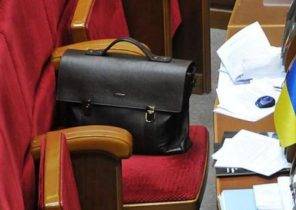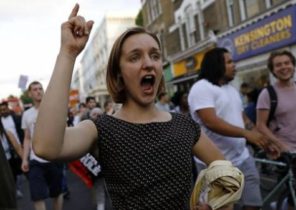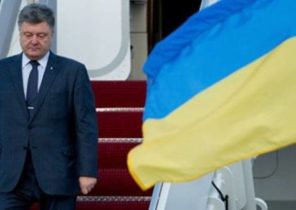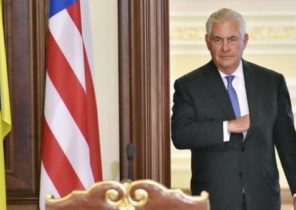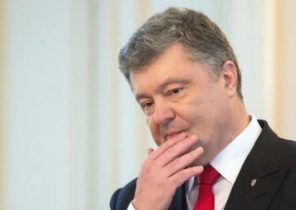How long before Brazil will shift to Russia and will be the second country in the world after the United States in the number of cases of coronavirus? Well, if you consider that Monday, 18 may, Russia announced about 8 thousand new cases of infection, and Brazil — about 14,3 thousand infections, then at the speed of the spread of disease which they show, Brazil will overtake Russia in about 10 days.
If Brazil will record for 12 thousand new cases of infection, and Russia — 2 thousand less than now, that is 6 million new cases by the end of may in Brazil will be confirmed at least 380 thousand cases of infection with the novel coronavirus, and in Russia — about 359 thousand. Of course, it all depends on the tactics of the testing population.
In Brazil testing for coronavirus are less than 3.5 thousand people per million population. “Among emerging economies, Brazil remains the worst in terms of speed of infection and mortality,” said Sachdev Piya (Piya Sachdeva), economist at Schroders the company.
She pointed out that in Brazil the ratio of R₀ or the rate of infection is approximately 1.3. This means that each infected with coronavirus person infects on average more than one person. In Russia and India, this ratio is also equal to 1.3, however, the authorities of these two countries are much more active and coordinated quarantine policy.
Brazil has risen to the top of the list last week, beating all other countries, except Russia and the United States. Now Brazil is experiencing the worst public health crisis since the epidemic of zika virus in 2015.
The situation is aggravated by the fact that within Brazil, the President Zaira Bolsonaro (Jair Bolsonaro) more enemies than friends. As in the United States, in Brazil now held hearings and political investigation on the background of the pandemic, and ordinary citizens wonder when they will finally be able to return to work and whether they have enough of those benefits that are allocated by the government to eat.
“The government skillfully creates a crisis inside the crisis. As for the market, it seems that the government could not develop a clear strategy of deterrence covid-19 and to provide economic protection, will reduce the level of confidence in Brazil after the end of the pandemic,” said Tiago Aragao (Thiago Aragao), founder of the consulting firm Policy Blueprint, which works with companies and investors, leading business in Latin America.
Bolsonaro lost two Ministers in less than a month. He lost his Minister of justice sérgio Moro (Moro Sergio), who once joined the team Bolsonaro with the pump. His resignation turned into a string of subpoenas and investigations against political figures — as is often the case in Washington. As in the United States, the Brazilian media excitedly talk about numerous coronavirus stories and political dramas both real and fictional.
“The decision to deny the seriousness of the pandemic, adopted Bolsonaro in the beginning, led to the fact that measures taken to combat the spread of the virus was haphazard and messy. This led to divisions within the country in a moment of strong socio-economic tensions,” explained Kevin Ivers (Kevin Ivers), Vice-President of DCI consulting Group, which works with hedge funds investing in Brazil.
Governors and mayors of the first foci of the epidemic have begun to take action when deaths started to grow rapidly. Meanwhile Bolsonaro criticized their actions and urged their supporters not to carry out their instructions.
He continued to hold meetings and various public events against the advice of its own health Minister.
His comrades of the government gradually began to turn away from him, and the speaker of the lower house of the Brazilian Parliament Maya Rodrigo (Rodrigo Maia), an experienced politician from his native state Bolsonaro Rio de Janeiro, came into violent conflict with the President. Supporters Bolsonaro don’t like Maya, and recently they staged a protest against him in the capital.
This crisis has forced Bolsonaro to break bread with the unpopular, but quite a large centrist parties. These politicians of the old school are the epitome of that type of policy, which is opposed by most Brazilians, when they tried to take away from the workers ‘ Party control of the government — the government, which was led by many of those centrist leaders who still continue to dominate the weary, but the explosive political landscape of Brazil.
In addition to the public health crisis the market has focused attention on the state of the Brazilian economy and on whether to keep the Minister of economy Paulo Gedes (Paulo Guedes) its place in the Cabinet. So far, so good. Gedes — reliance.
Meanwhile, the economic support system, suffering from the pandemic, was as good as could be hoped for. Brazil’s Central Bank eased reserve requirements, have significantly increased money supply in the financial system and received from Congress the green light to start implementing the Brazilian version of the American program of quantitative easing. The Central Bank will buy securities of the Brazilian government just printed money for the first time in the history of this country.
Fiscal policy is also eased. Czerwonko Alejo (Alejo Czerwonko), an analyst on developing economies at UBS Financial Services, believes that this year the budget deficit in Brazil will grow at least 15% of GDP in 2019 amounted to 6 per cent — because of the extension of the payment of unemployment benefits and payments to low-income citizens, who lost their incomes due to the pandemic. In addition, corporations can rely on subsidized loans and guarantees, and the Federal government will support States and cities.
Means Brazil is getting smaller. The Brazilian real lost 31% of its value against the dollar, becoming among the currencies of emerging markets currency with the worst performance. Last week for one dollar gave 6 reals, but since then real has slightly strengthened its position, now its rate is 5.71.
This year, the spreads on sovereign bonds of Brazil increased by 230 basis points relative to 10-year US government bonds, while Brazil’s foreign debt is only 10% of GDP, and its foreign exchange reserves exceed 20% of GDP. Brazil will not go bankrupt as a perpetual deadbeat, Argentina.
YTD quotes iShares MSCI Brazil declined by 49.8% is the worst performance among emerging markets.
Buy on lows now should only be those who have relied on products with a long investment horizon and is in good enough shape to survive the Brazilian crisis within the crisis.
Most likely, Brazil will soon become number 2. But when that day comes, it will not be number 2 in the list of the strongest markets in the world.


